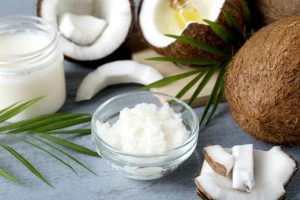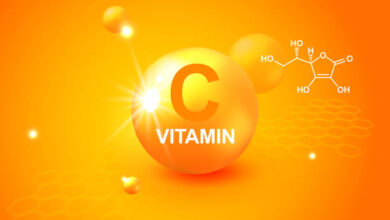
Coconuts
Coconuts, the fruit of the Cocos nucifera tree, has been a staple in the diets of tropical regions for centuries. Beyond its delicious taste and versatility, this humble fruit boasts a remarkable array of health benefits that have earned it the moniker of “nature’s nutrient powerhouse.” From its oil to its water, flesh, and even its husk, every part of the coconut offers something unique and valuable. In this article, we will explore the extensive range of benefits associated with coconut consumption and utilization, shedding light on why this tropical treasure has become a global sensation.
1. Nutrient Density
Coconuts are an excellent source of essential nutrients, making them a valuable addition to any diet. They are rich in vitamins, minerals, and dietary fiber. One cup of raw, shredded coconut meat contains significant amounts of manganese, copper, iron, and selenium. Moreover, coconuts are a good source of B vitamins such as folate, riboflavin, and niacin, which play essential roles in energy metabolism and overall health.
2. Healthy Fats
Coconut is renowned for its high content of healthy fats, predominantly saturated fats in the form of medium-chain triglycerides (MCTs). These MCTs, particularly lauric acid, are unique because they are metabolized differently than long-chain fatty acids found in most other foods. They are rapidly absorbed by the body, serving as a quick source of energy.
The MCTs in coconut oil have been linked to several health benefits, including improved cognitive function, weight management, and reduced risk of heart disease. Some studies suggest that MCTs can increase the body’s ability to burn fat, making coconut oil a popular choice among those looking to shed excess pounds.

3. Heart Health
Contrary to the myth that saturated fats are harmful to heart health, the saturated fats in coconuts may actually have a positive impact on cardiovascular health. Lauric acid, which makes up a significant portion of coconut oil, can increase levels of high-density lipoprotein (HDL) cholesterol, often referred to as “good” cholesterol. Higher levels of HDL cholesterol are associated with a reduced risk of heart disease.
Additionally, the antioxidants in coconut oil, such as polyphenols, may help reduce oxidative stress and inflammation, both of which are contributing factors to heart disease. Incorporating coconut oil into your cooking or as a salad dressing can be a heart-healthy choice.
4. Weight Management
Coconut’s unique combination of MCTs and dietary fiber can contribute to weight management. MCTs can increase feelings of fullness and reduce calorie intake, which may help control appetite and prevent overeating. Moreover, coconut’s fiber content supports digestion and promotes a feeling of satiety.
Some studies have suggested that incorporating coconut oil into a balanced diet may lead to a reduction in abdominal fat, a type of fat associated with an increased risk of metabolic syndrome and heart disease.
5. Skin and Hair Care
Coconut is not just beneficial when consumed; it is also a popular ingredient in many beauty and skincare products. Coconut oil, in particular, is lauded for its moisturizing and nourishing properties. When applied topically, it can help hydrate and soften the skin, making it a valuable addition to your skincare routine.
Furthermore, coconut oil can be used as a natural hair conditioner. Its rich composition of fatty acids can help improve hair texture, reduce frizz, and enhance shine. Many people use coconut oil as a hair mask or leave-in conditioner to maintain healthy and beautiful locks.

6. Dental Health
Oil pulling, a traditional Ayurvedic practice, involves swishing oil around in the mouth to promote oral hygiene. Coconut oil is commonly used for this purpose due to its antimicrobial properties. The lauric acid in coconut oil has been shown to inhibit the growth of harmful bacteria in the mouth, potentially reducing the risk of dental issues like cavities and gum disease.
7. Immune Support
Coconuts are a rich source of antioxidants, vitamins, and minerals that can bolster the immune system. For example, coconut water is not only a natural electrolyte replacement but also contains cytokinins, which may have anti-aging and anticancer effects.
Additionally, the lauric acid in coconut has antimicrobial and antiviral properties, which can help the body defend against infections. Coconut-based products like coconut oil, water, and milk can be valuable additions to a diet aimed at strengthening the immune system.

8. Digestive Health
The dietary fiber in coconut can promote digestive health by preventing constipation and supporting regular bowel movements. It also provides prebiotics, which nourishes the beneficial bacteria in the gut. A healthy gut microbiome is essential for overall well-being and may even influence other aspects of health, such as immunity and mood.
9. Antioxidant Properties
Coconut contains antioxidants, including polyphenols and flavonoids, which help combat oxidative stress and reduce the risk of chronic diseases. These antioxidants can neutralize harmful free radicals, which are linked to cellular damage and the aging process.
10. Versatile Culinary Uses
Beyond its health benefits, coconuts are a versatile culinary ingredient. From coconut milk and cream to shredded coconut, coconut flour, and coconut sugar, there are numerous ways to incorporate coconut into a variety of dishes. It adds a unique flavor and texture to both sweet and savory recipes, making it a favorite in cuisines around the world.

Conclusion
Coconut is truly a remarkable fruit that offers a wide array of health benefits, from supporting heart health and aiding in weight management to promoting radiant skin and boosting the immune system. Its versatility in both culinary and beauty applications has made it a beloved and essential ingredient for many.
While coconut, in its various forms, can be a valuable addition to a balanced diet. It’s essential to consume it in moderation, as it is calorie-dense due to its fat content. As with any dietary changes, it’s advisable to consult with a healthcare professional. Or nutritionist to ensure that coconut consumption aligns with your individual health goals and needs.
Incorporating coconut into your lifestyle, whether through cooking. Skincare or simply enjoying a refreshing coconut water can be a delicious and healthful choice. So, embrace the bounty of benefits that this tropical treasure has to offer. And savor the goodness of nature’s nutrient powerhouse.





